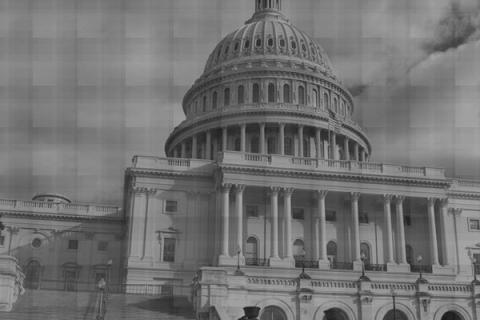Jim Antle writes at the Daily Caller about a Rand Paul foreign policy speech at the Heritage Foundation on February 6:
"'At this lecture, Senator Paul will discuss his vision of a foreign policy that respects the plain language of our Constitution, the legal powers of Congress, and the important role of a strong presidency,' the invitation says. 'It will stress the need for maintaining the strongest national defense among nations while also questioning what constitutes actual defense."
This speech has been a little time coming - ever since Paul's announced trip to Israel a foreign policy speech was supposed to be in the works. We may finally see what the senator means by a "constitutional conservative foreign policy." The speech is also a chance to see what direction Jim DeMint is going to be taking Heritage.
In the Senate, DeMint was a pretty reliable interventionist for most of his tenure while decent on some domestic issues. As time wore on he got a little better by opposing the Libyan intervention and even voting to end the Iraq War. In recent years Heritage has been just another GOP cheerleader masquerading as a think tank, but if DeMint has taken a step away from Lindsey Graham and a step toward to Ron Paul, then perhaps Heritage is indicating that DC needs room for a foreign policy vision that is not blood-soaked.
But back to Paul. To this point in his political career, Rand Paul has taken a relatively safe path: Opposing foreign aid to hostile regimes, slowly weaning Israel off foreign aid, and opposing presidential war-making powers. Again, it's been a relatively safe path, but it's also placed him in the foreign policy conversation.
Paul's foreign policy pronouncements to this point have indicated that he has at least most of the right instincts. He has sporadically mentioned that the GOP doesn't need to be a war party and that softening the war stance may be a way for Republicans to win support from younger voters.
Opposing presidential war-making powers is an important issue not the least of which because the Constitution gives that power to the Congress. By taking this path, Paul covers his bases by opposing wars of aggression by cleverly couching his opposition in the language constitutional powers.
Judging from the invitation, it seems Paul is still going to be doing what he's done so far: try to split the difference between non-interventionists and the various interventionists and nationalists in the rest of the party. A discussion on what constitutes "defense" is a long time coming, but what does he mean by "the important role of a strong presidency"? Is this going to be a critique of the strong presidency? Dick Cheney is the only person I'm aware of who thought the presidency wasn't strong enough, so I'm curious to see how Rand Paul will reconcile "the legal powers of Congress" with "a strong presidency."
Rand Paul is trying to please all sides, and more times than not, he has urged a humbler approach to American foreign affairs. That more people seem to be caring about his presidential aspirations than his father's means the younger Paul has succeeded to a reasonable degree - for now. The real test will come when he is faced with a charismatic, zealous interventionist like Marco Rubio, a candidate who naturally commands more support from the think tanks, talk radio, and cable news watchers because he offers less resistance to the status quo.
It's Antle's colleague at the Daily Caller, Jamie Weinstein, who expresses a sentiment many people listening to Paul are probably feeling. "I am less concerned with Paul's position on Israel," which leaves Weinstein skeptical, "than I am with what he believes America's role in the world should be." Translation: you'd better still be for the empire.
The speech is a week and a day from today (Tuesday), but eyes and ears will be on Rand Paul.
Update: The Heritage page now says "the legal powers of Congress and the proper duties of the Commander-in-Chief." It's a little different from what was first reported when it was "the legal powers of Congress and the important role of a strong presidency." The change implies an intention to curtail presidential powers whereas as the original version may have been what Heritage really wanted.
